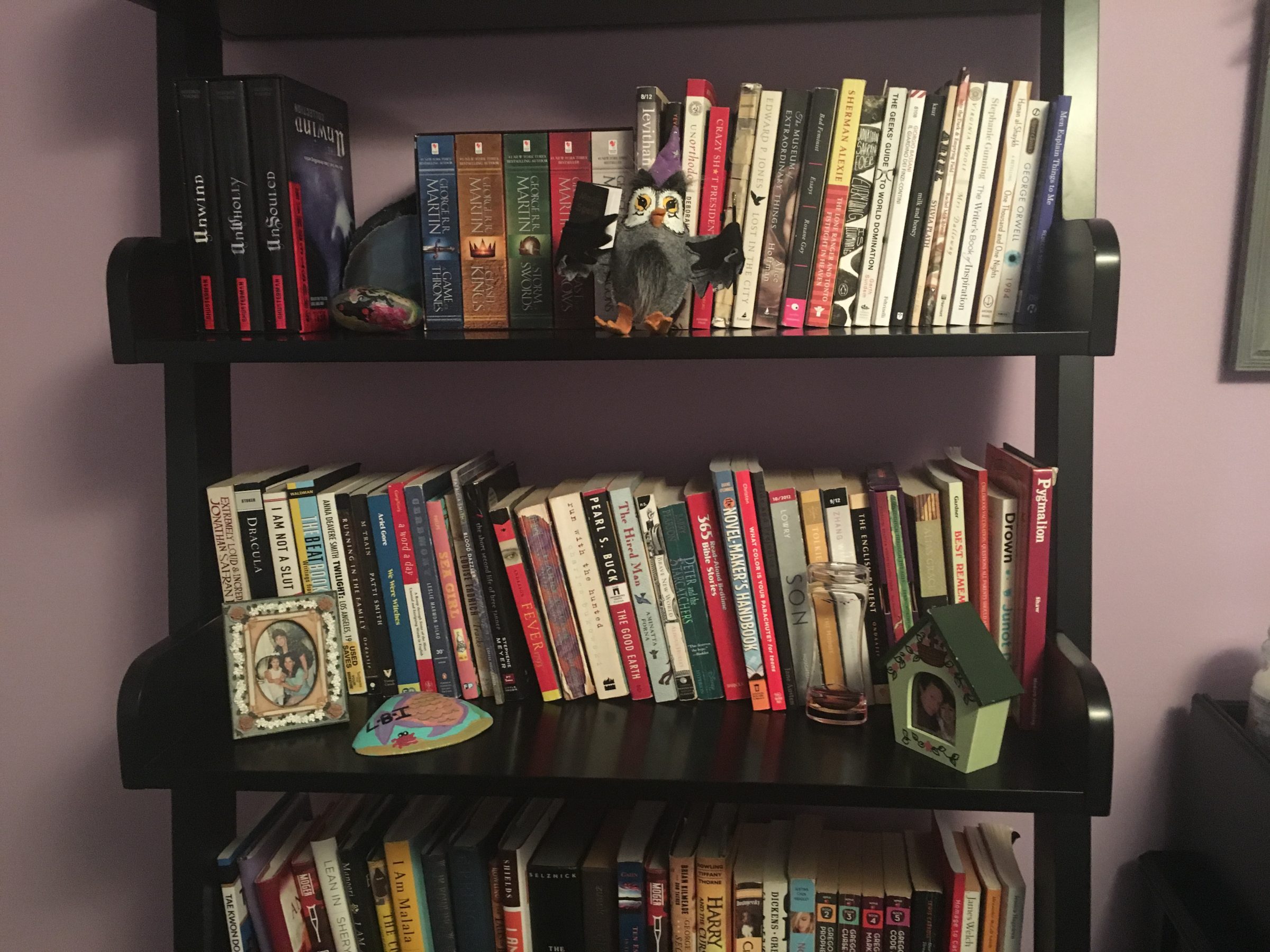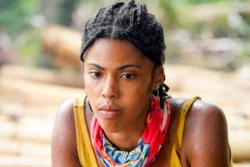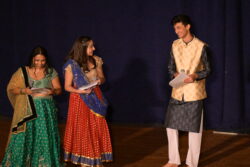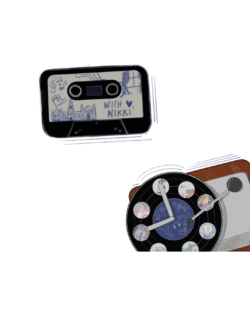This article will discuss major plot details (including the ending) of The Red Tent.
The Red Tent is an epic of biblical proportions. No, really. Anita Diamant’s novel tells the story of Jacob’s daughter Dinah, no more than a passing footnote in the Bible’s Book of Genesis. Diamant’s novel retells recognizable events through Dinah’s eyes as it maps out her life and provides insight into womanhood in biblical times.
Honestly, I’m not religious at all. I went to Sunday school at the Community Church of East Williston when I was a kid and even played an angel in the annual nativity play a few times, but I never connected with religion. Even so, the Bible fascinates me, particularly the female characters who are so often underwritten or overlooked.
When I saw the Lifetime miniseries adaptation of Diamant’s book (which I would also recommend), I knew I had to read the original. The story is a sweeping tale that follows Dinah from before she’s born to her eventual death: a tale of love, violence, adolescence, and womanhood.
Dinah is the sister of Joseph (you know, Joseph and the Technicolor Dreamcoat Joseph?), Simon, and Levi, among many others. Her mother is Leah, one of Jacob’s four wives (including Rachel, Bilhah, and Zilpah). Jacob is the grandson of Abram and the son of Isaac. The Abram God challenged to sacrifice his son to prove his love for Him? Yeah, that Abram.
Diamant’s writing style is mystical, dreamlike, and powerful. When reading this book, I found myself transported to an ancient, yet timeless place: the messages of insecurities and precarity faced by women were both particular to its time and somehow also contemporarily relevant. She weaves an intricate story, its threads intersecting to tell a tale of life in a patriarchal culture, when wives were subordinate, bartered, used, abused, but rarely respected for more than their bodies.
Jacob’s wives, it seems, were something of an exception. Still ultimately subordinate, each was unique and strong in her own way. Diamant adds dimension and complexity to characters written in the Bible only in relation to their husbands, their children, or their reproductive potential. Most characters throughout the book are referred to as “son of” or “daughter of,” emphasizing the importance of family ties and status within society.
At the beginning of the novel, Diamant introduces the idea of storytelling as a way of preserving memories and traditions. She laments the fact that the chain, the connection between ancestors and descendants, has been broken (until now): “The chain connecting mother to daughter was broken and the word passed to the keeping of men, who had no way of knowing. That is why I became a footnote, my story a brief detour between the well-known history of my father, Jacob, and the celebrated chronicle of Joseph, my brother. On those rare occasions when I was remembered, it was as a victim.”
The concept of ancestral memory really intrigues me. This book made me contemplate my own role in preserving the stories of my ancestors, and it made me realize how little I really do know about their lives, their personalities, their desires. I think many of the chains connecting our mothers to our daughters have become a bit broken, but this novel proved the damage isn’t irreparable, that tales can be dug up and revived even thousands of years later.
Dinah’s four mothers, Leah, Rachel, Bilhah, and Zilpah, all play a role in guiding Dinah into womanhood. Leah, Jacob’s first wife, bore him many children and is pivotal in the running of the camp. Rachel, Leah’s younger sister, is unable to have children, but she learns how to be a midwife (a profession that Dinah adopts in her adolescence as well). Zilpah was highly religious, and she “talked about gods and goddesses almost more than she spoke about people.” Bilhah was younger, shyer, quick and silent, climbing trees and daydreaming.
Dinah is raised in this camp, doing the bidding not only of men but of the older women who are her superiors in the established hierarchy. Being the only girl out of all of Jacob’s children, she wonders endlessly about the mysteries of womanhood, menstruation, men—the secrets exchanged in the red tent.
The red tent is where women in biblical times went during their periods. In Jacob’s camp, in which Dinah is born, all the women’s cycles are synced, so they all enter the red tent together.
“In the red tent, the truth is known. In the red tent, where days pass like a gentle stream, as the gift of Innana courses through us, cleansing the body of last month’s death, preparing the body to receive the new month’s life, women give thanks—for repose and restoration, for the knowledge that life comes from between our legs, and that life costs blood,” says Dinah’s grandmother.
The red tent is a place of mystery, where no men may enter. Entering the red tent affords a young woman a certain status and privilege she did not previously possess, as she now has the potential to create life. When she finally becomes a woman in the biological sense, the bond she shares with her mothers only deepens.
This intense curiosity was a very relatable emotion. I remember anxiously waiting to get my period, 13-year-old me already feeling behind and excluded, not part of the mysterious club of young womanhood. It really did seem like the middle school girls who had their period possessed status and privilege that the others did not.
But Dinah finally gets hers and is then “inducted” into the club: “With new pride, I carried myself into the tent, knowing that my swelling breasts would no longer be a joke among the women. Now I would be welcome inside any tent when Rachel and Inna attended a birth. Now I could pour out the wine and make bread offerings at the new moon, and soon I would learn the secrets that pass between men and women,” Dinah thinks hopefully.
Dinah learns to become a midwife, a respected profession. When Dinah’s family moves closer to the city of Shechem, she and Rachel are called upon to attend the birth of one of the King’s concubines. There, Dinah meets Shalem, prince of Shechem. They instantly fall in love and have a passionate affair with the approval of Shalem’s mother, the Queen.
At the time, sex before marriage meant a potential bride was ruined, damaged, and the scandal would cause intense shame for the girl’s family if her lack of virginity ever became publicly known. But Shalem intended to marry Dinah and offered Jacob an immense dowry in exchange for Dinah’s hand.
Simon and Levi, Dinah’s brothers, don’t accept Shalem, insisting that their sister was raped, her virtue taken from her. “Am I to permit this desecration of our only sister, my own mother’s daughter?” Simon rages. They devise a plot: insist that all the men in Shechem be circumcised, as per their faith tradition. This seems like a steep price to pay, but the men of Shechem agree.
When they’re all immobilized and recovering from the surgery, Simon and Levi invade the city and murder all the men they can find. Dinah wakes up choking on Shalem’s blood.
Reading this part made my blood boil. The idea that Simon and Levi could somehow determine what was best for Dinah without knowing anything about the situation, just because their pride was wounded, was incredibly frustrating. Turns out patriarchal culture and male egos wreak havoc and ruin lives even in biblical times (or were biblical times the original patriarchy?) And the damage they inflicted is remembered even today.
Dinah is devastated at the horror her own family has inflicted upon her husband and his entire city. She cursed all of them to a life of unrest, forsaken by God: “With the smell of my husband’s blood still in my nostrils, I named them each and called forth the power of every god and every goddess, every demon and every torment, to destroy and devour them…The blood of Shalem was embedded beneath my fingernails, and there was no pity in my heart for any of them.”
Dinah leaves her family, effectively cutting ties from everything she has ever known, and travels to Egypt with Shalem’s mother, where she discovers she is carrying Shalem’s child. The child gives Dinah a reason to live, to survive and fight through the devastation she feels, but Shalem’s mother insists on raising the child as her own. Dinah lives with them more as a servant and nurse than her child’s real mother.
She grows older, gaining renown as a midwife, but never divulges her full story to anyone. Years later, when she is middle-aged and her son is an adult, she meets a craftsman named Benia who later becomes her husband. To him, and her good friend Meryt, she finally tells her entire story.
This emotional catharsis emphasizes the importance of storytelling, of memories. Keeping them bottled inside leaves one emotionally stagnant, unable to move forward and live life freely. But the truth is liberating.
The book ends with Dinah’s death, the sunset to a truly epic tale of love, loss, womanhood, and blood in all its forms. But when Dinah dies, she’s not really gone: “I died but I did not leave them. Benia sat beside me, and I stayed in his eye and in his heart. For weeks and months and years, my face lived in the garden, my scent clung to the sheets. For as long as he lived, I walked with him by day and lay down with him at night. When his eyes closed for the last time, I thought perhaps I would finally leave the world. But even then, I lingered. Shif-re sang the song I taught her and Kiya moved with my motions. Joseph thought of me when his daughter was born. Gera named her baby Dinah… Egypt loved the lotus because it never dies. It is the same for people who are loved.”
In The Red Tent, blood is both life and death, both beginning and end, both menstruation and brutality. This sense of duality represents just how complex womanhood is, how fraught with trauma our lives so often are, how much we can withstand for our children, our families, our loved ones. At the end of this book, I had regained a sense of how powerful women can be.





